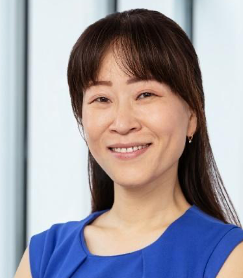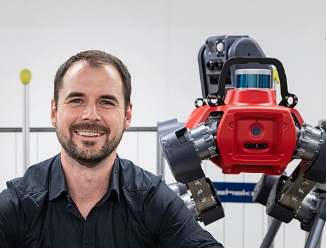Panel: Cognitive Humanoids and Generative AI
When: Sunday 24 at 16:30-17:30
Where: Amphitheater 450 (1st floor)
This panel discussion will explore the meaning of “Cognitive Humanoids and Generative AI.” This interdisciplinary panel will share diverse perspectives on the term “Cognitive Humanoids.”
What does “cognitive” mean from various viewpoints? We will also examine the key challenges that must be overcome to enable humanoid robots to achieve true cognitive capabilities.
What are the thoughts on the recent trends in Generative AI in relation to developing cognitive humanoids? Could this be the solution to advancements in humanoid robotics?
Moderator:
Gordon Cheng
Gordon Cheng has made pioneering contributions in Humanoid Robotics, Neuroengineering, and Artificial Intelligence for more than 20 years. Since 2010, he holds the Chair Professor for Cognitive Systems, and the Director of the Institute for Cognitive Systems at the Technical University of Munich, Germany. Prof. Cheng is the Program Director of the Elite Master of Science in Neuroengineering of the Elite Network of Bavaria, a highly selective and unique study program in Germany. He is also the coordinator of the Center of Competence Neuro-Engineering. Gordon Cheng is the co-inventor of 20 patents and has co-authored over 450 technical publications, proceedings, editorials, books, and book chapters. The IEEE acknowledged this interdisciplinarity when he was named IEEE Fellow in 2017 for his “contributions in humanoid robotic systems and neurorobotics.” His research interests include NeuroRobotics, Humanoid Robotics, Imitation Learning, Cognitive Systems, Artificial Intelligence and NeuroEngineering.
Panelists:
Dongheui Lee
Dongheui Lee is full Professor of Autonomous Systems at TU Wien, Austria since 2022. She is also leading the Human-Centered Assistive Robotics group at the German Aerospace Center (DLR) since 2017. Her research interests include human motion understanding, human-robot interaction, machine learning in robotics, and assistive robotics. Prior to her appointment at TU Wien, she was an Assistant Professor and Associate Professor at the Technical University of Munich (TUM), a Project Assistant Professor at the University of Tokyo, and a research scientist at the Korea Institute of Science and Technology (KIST). She obtained a PhD degree from the Department of Mechano-Informatics, University of Tokyo in Japan. She was awarded a Carl von Linde Fellowship at the TUM Institute for Advanced Study and a Helmholtz professorship prize. She has served as Senior Editor and a founding member of IEEE Robotics and Automation Letters (RA-L) and Associate Editor for the IEEE Transactions on Robotics.
Kei Okada
Kei Okada is Professor at the University of Tokyo, Graduate School of Information Science and Technology, Department of Mechano-Informatics, JSK Laboratory. He received the BE in Computer Science from Kyoto University in 1997. He received the MS and the PhD in Information Engineering from The University of Tokyo in 1999 and 2002 respectively. From 2002 to 2006, he jointed the Professional Programme for Strategic Software Project in The University Tokyo. Since March 2006, he has been a assistant professor in Creative Informatics at The University of Tokyo. His research interests include humanoids robots, real-time 3D computer vision, and recognition-action integrated system. He is a member of IEEE, Information Processing Society of Japan and the Robotics Society of Japan.
Agnieszka Wykowska
Agnieszka Wykowska is the head of the unit “Social Cognition in Human-Robot Interaction” at the Italian Institute of Technology (IIT), in Genoa, Italy. She is also the Coordinator of the Center for Human Technologies, at the IIT. Her background is Cognitive Neuroscience (Master’s degree in Neuro-Cognitive Psychology from the Ludwig Maximilian University Munich in 2006). She obtained a PhD in Psychology (2008) from the same university. In 2016 she was awarded the ERC Starting grant “InStance: Intentional Stance for Social Attunement”. Between 2022 and 2024 she served in the role of President of the European Society for Cognitive and Affective Neuroscience (ESCAN). She is Editor-in-Chief of International Journal of Social Robotics. In 2023 she was awarded the Hans-Fischer Senior Fellowship from the Institute of Advanced Studies at the Technical University Munich to lead a research group “Human Cognition in Neuroengineering”.
Marco Hutter
Marco Hutter is a professor for robotic systems at ETH Zurich, heada of the AI Institute in Zurich and co-founder of several ETH Startups such as ANYbotics AG, a Zurich-based company developing quadrupedal robots for industrial applications. Marco’s research interests are in the development of novel machines and actuation concepts together with the underlying control, planning, and machine learning algorithms for agile legged locomotion. Marco’s quadrupeds operate autonomously in some of the most challenging environments like offshore facilities, underground mines, or forestry environments.
Ales Ude
Ales Ude is the head of Department of Automatics, Biocybernetics and Robotics, Jožef Stefan Institute, Ljubljana, Slovenia, and the founder of the Humanoid and Cognitive Robotics Lab. He is also associated with ATR Computational Neuroscience Laboratories in Kyoto, Japan. His main research interests are in applying the results of the research on human motor control and perception to the creation of cognitive agents, such as humanoid robots. His research focuses on robot learning, especially imitation learning and learning by exploration, where he combines statistical learning techniques and reinforcement learning to increase the efficiency and autonomy of the acquisition of new sensorimotor behaviors.








